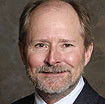Commentary on Acts 10:34-43
This particular text has been chosen for Baptism of our Lord Sunday because it refers both to John’s baptismal mission and to God’s anointing of Jesus with the Holy Spirit as part of a kerygmatic speech by Peter.
On the surface nothing too controversial leaps out of the text to assault the contemporary hearer’s theological sensibility. When one considers the context of this speech within the flow of Acts, however, Peter’s speech is monumental. It reflects Peter’s gigantic “aha!” moment when he has come to realize that, within God’s missional program of salvation, all really, truly means all.
At the beginning of Acts 10, those who believe in Jesus as Lord and Messiah and who are now members of God’s reconstituted Israel have been Jews and Samaritans. Both groups have had the word preached to them by God’s commissioned agents. Both groups have been baptized and received the Holy Spirit (especially see Acts 2:37-42; 8:14-17). By Acts 10:33, however, everything is now being changed forever as God has forced Peter to come to the astonishing realization that God has decided to include Gentiles as part of God’s people.
The physical setting of Peter’s speech is exclusively Gentile in two ways. First, Peter is in the city of Caesarea Maritima. This was the coastal city that King Herod had built for his Roman patrons (ca. 22-9 BCE). Not only was this the capital of the Roman province of Judaea, it was also thoroughly Roman in its character and structures. The city’s crowning building was a grand temple dedicated to Caesar Augustus and the goddess Roma perched on a hill overlooking its newly engineered harbor.
Up to this point in Luke and Acts (recalling that they are two-volumes in a single narrative), neither Jesus nor his followers have set foot in such a pagan location. Second, Peter is in the house of an Italian officer in the Roman army named Cornelius (10:1). Jews do no visit the homes of Gentiles as Peter initially reminds Cornelius (10:28). Previously in Luke 7:6-7 a centurion living in Capernaum had messengers tell an approaching Jesus that it was inappropriate for Jesus to come to his house. So Peter is in a city and a house where God’s people should not be. Indeed the only reason that Peter is in such a Gentile location speaking to a house full of Gentiles is that God has arranged this encounter (see 10:3-8,17-24,29-33).
The emphatic first words out of Peter’s mouth in the Greek of 10:34b are “by truth.” Here Peter has now perceived the truth of what God’s impartiality entails. That God shows no partiality is not a new theological claim (see Deuteronomy 10:17; Sirach 35:12-13).
What is absolutely new here are the implications of divine impartiality. The character of God as an impartial God now means the character of God’s community is impartial. The dividing lines separating Jew and Gentile based on who is clean and who is not according the law have been obliterated. This does not mean Israel as God’s people has been obliterated. Rather the basis for membership is now radically redefined. God accepts people not on the basis of ethnic identity.
An example of this radical new divine inclusivity is the phrase “every nation” in 10:35a. That exact same phrase was previously used in the Pentecost story when it was reported that there were pious Jews from “every nation” in Jerusalem (2:5). There “every nation” was the geographical home for pious Jews. Now, however, “every nation” includes the pious and righteous people whom God finds acceptable be they Jew or Gentile (10:35b).
Likewise in Peter’s Pentecost speech he opened with a “you know” to his Jewish audience highlighting their familiarity with Jesus’ ministry (2:22). Now he uses the same “you know” to his Gentile audience regarding their familiarity with Jesus’ ministry (10:37 in the Greek but 10:36 in English translations).
Thus the assumption being made is that the story about Jesus is familiar both to Jews and Gentiles. What has now changed is that salvific access to Jesus is now available both to Jews and Gentiles. This is demonstrated in another parallel between Peter’s Pentecost speech and his speech to Cornelius’ family and friends. The former speech ended with an announcement of forgiveness of sins in Jesus’ name to Peter’s Jewish audience (2:38).
This speech ends with an announcement of forgiveness of sins through Jesus’ name for everyone who believe in Jesus (10:43). What has changed is the scope of everyone. At Pentecost, everyone meant Jews from every nation. Now, however, everyone means everyone in every nation who believes in Jesus. Unfortunately the climactic connection to the Pentecost story comes just beyond the lectionary boundaries when the Holy Spirit suddenly falls onto these Gentiles resulting in their speaking in tongues and their baptism in Jesus’ name (10:44-48 recalling 2:1-4, 37-42).
Again this radical inclusion of Gentiles does not mean the exclusion of Israel as Peter’s speech and its links to previous aspects of Luke-Acts makes clear. God sent the word to Israel (10:36a). John’s baptismal ministry was in fulfillment of God’s promises to Israel (10:37; Luke 1:67-80; 3:1-17; 7:24-27). The liberating mission for which Jesus was anointed with the Spirit involves God’s restoration project in fulfillment of Isaiah 61:1-2; 58:6 (10:38; Luke 4:16-21). In Paul’s subsequent ministry narrated in Acts 13-28, Paul always goes first to a Jewish audience because there remains a salvific priority for Israel.
What has changed is the scope of “all.” In Luke 24:47 Peter and the other disciples were commissioned by the risen Christ to preach repentance and forgiveness in Jesus’ name to all nations. In fulfillment of this commission Peter told his Jewish Pentecost audience from all nations that Joel’s prophecy regarding the outpouring of the Spirit had been fulfill so that all who call upon the name of the Lord would be saved (Acts 2:21; Joel 2:32a).
In each case, the perception of Peter and the rest of Jesus’ followers was that all only meant Jews (and Samaritans as noted above). Because Jesus is the Lord of all (10:36b) and is the one God has ordained to be the judge of the living and the dead (10:42b), all Jews and all Gentiles who believe in him receive forgiveness of sins through his name (10:43). In God’s salvific plan, all now really means all.


January 12, 2014